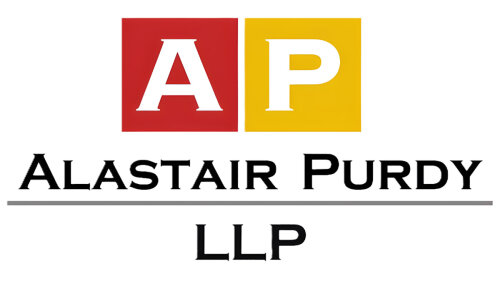Best Pension Lawyers in Galway
Share your needs with us, get contacted by law firms.
Free. Takes 2 min.
List of the best lawyers in Galway, Ireland
About Pension Law in Galway, Ireland
Pension law in Galway, Ireland, is designed to regulate the process of retirement savings and the disbursement of funds upon retirement. It encompasses a wide variety of issues, including statutory pensions, personal pensions, occupational pensions, and various tax implications related to these pension arrangements. Understanding pension law is crucial for ensuring that retirement savings are managed effectively and in compliance with legal requirements. The framework provided by Irish pension laws ensures that individuals are protected and that their pension rights are upheld, promoting financial security in retirement. This guidance is particularly relevant for residents and employees in Galway, a region known for its diverse employment sectors, each with specific pension needs and obligations.
Why You May Need a Lawyer
Engaging a lawyer may be necessary in several scenarios relevant to pension law. Common situations include:
- Disputes regarding entitlements or benefits from occupational or personal pensions.
- Concerns about compliance with pension regulations and tax implications for your retirement plans.
- Complex legal issues arising from divorces affecting pension rights.
- Guidance on transferring pension funds between different schemes or jurisdictions.
- Addressing grievances with employers or pension providers about contributions or benefit calculations.
- Creating or revising pension trust deeds and rules tailored to individual or organizational needs.
Local Laws Overview
Key aspects of local laws in Galway regarding pensions include:
- The Pensions Act 1990, which sets out the regulations for occupational pensions, including minimum funding standards and the role of trustees.
- Provisions regarding tax reliefs on pension contributions, as guided by the Revenue Commissioners in Ireland.
- Rules on State pensions, which provide basic financial security for those of pensionable age, subject to PRSI contributions and other criteria.
- Adherence to European Union directives that affect pensions, ensuring compliance with broader international standards.
- Guidelines and oversight provided by the Pensions Authority, responsible for the supervision and regulation of occupational pension schemes and Personal Retirement Savings Accounts.
Frequently Asked Questions
What age can I start receiving my State pension in Ireland?
The State pension (Contributory) age is currently 66. However, this may be subject to change in the future.
Are my pension contributions tax-deductible?
Yes, pension contributions to approved schemes generally qualify for tax relief, subject to certain limits based on age and earnings.
Can I transfer my pension to a scheme in another country if I move abroad?
Yes, transferring your pension is possible, but it depends on both the rules of your current scheme and the receiving country's regulations.
What happens to my occupational pension if I change jobs?
When changing jobs, you may have several options, such as leaving your pension in the existing scheme, transferring it to a new employer's scheme, or to a personal retirement bond or PRSA.
How are pensions divided in the case of a divorce?
During a divorce, pension assets may be divided as part of the financial settlement, often facilitated by a pension adjustment order to share benefits between spouses.
What is an AVC in pension terms?
Additional Voluntary Contributions (AVCs) are extra payments made to boost your retirement benefits, typically offering tax efficiency advantages.
How do I know if my pension scheme is being managed correctly?
Pension schemes have trustees responsible for ensuring proper management. Reviewing scheme reports, regular communication from trustees, and audits can provide reassurance.
What protection do I have if my employer's pension scheme is underfunded?
Underfunded schemes must follow statutory funding proposals to recover deficits, overseen by the Pensions Authority to ensure member benefits are protected as much as possible.
When can I access my private/occupational pension benefits?
Typically, benefits can be accessed from the age of 60, though some schemes allow earlier access due to ill health or with special provisions.
Can I leave my pension to a beneficiary when I die?
Yes, most pension plans allow you to designate a beneficiary, ensuring your pension benefits are passed on in the event of your death.
Additional Resources
For those seeking more information and assistance, consider the following resources:
- The Pensions Authority, which offers guidance and oversight on pension schemes.
- The Citizens Information website, providing comprehensive insights into how pensions work in Ireland.
- The Revenue Commissioners for advice regarding the tax treatment of pensions.
- Consulting with a specialized pension solicitor for personalized legal advice.
Next Steps
If you require legal assistance regarding pensions, consider:
- Contacting a licensed solicitor with expertise in pension law in Galway. Look for those with a track record of dealing effectively with pension-related disputes and consultations.
- Gathering all relevant documents related to your pension schemes, such as statements, trust documents, and communication from pension providers.
- Preparing a list of questions and issues you would like to address beforehand to make your consultation as productive as possible.
- Checking for any free legal advice services offered locally in case you have financial constraints.
Lawzana helps you find the best lawyers and law firms in Galway through a curated and pre-screened list of qualified legal professionals. Our platform offers rankings and detailed profiles of attorneys and law firms, allowing you to compare based on practice areas, including Pension, experience, and client feedback.
Each profile includes a description of the firm's areas of practice, client reviews, team members and partners, year of establishment, spoken languages, office locations, contact information, social media presence, and any published articles or resources. Most firms on our platform speak English and are experienced in both local and international legal matters.
Get a quote from top-rated law firms in Galway, Ireland — quickly, securely, and without unnecessary hassle.
Disclaimer:
The information provided on this page is for general informational purposes only and does not constitute legal advice. While we strive to ensure the accuracy and relevance of the content, legal information may change over time, and interpretations of the law can vary. You should always consult with a qualified legal professional for advice specific to your situation.
We disclaim all liability for actions taken or not taken based on the content of this page. If you believe any information is incorrect or outdated, please contact us, and we will review and update it where appropriate.














